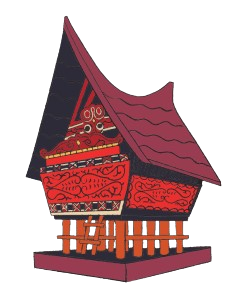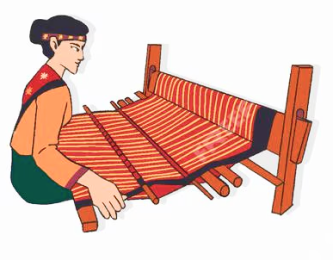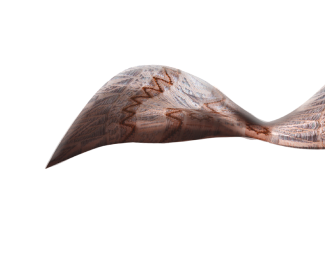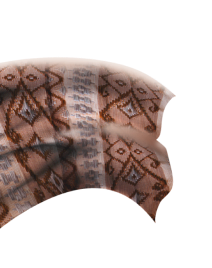Songket Tenun Silungkang + Selendang
Fabric Type: Songket
Pattern Name: Cemara
Pattern Meaning: In Minangkabau culture, the "Motif Pohon Cemara" or Pine Tree motif holds various symbolic meanings. The motif represents strength, resilience, and longevity, akin to the enduring nature of pine trees. It embodies the idea of perseverance and steadfastness, reflecting the cultural appreciation for endurance and determination in the face of challenges. Additionally, the Pohon Cemara motif can symbolize wisdom and enlightenment. Pine trees have been associated with wisdom and knowledge in different cultures, and the motif may represent the pursuit of wisdom and understanding in life. The motif may also carry connotations of protection and shelter. Pine trees are often seen as a source of shelter and protection in nature, and the Pohon Cemara motif may symbolize the role of providing safety and comfort to those in need. Furthermore, the motif can be a representation of the connection between humans and nature. It celebrates the importance of harmony and coexistence with the natural world, reflecting the cultural values of the Minangkabau people in preserving their environment. The Pohon Cemara motif also holds cultural significance, signifying the identity and heritage of the Minangkabau people. As an integral part of traditional textiles and attire, it preserves and showcases the unique artistic expression and craftsmanship of their culture. Interpretations of motifs can vary, and individuals may attach personal meanings based on their experiences and beliefs. Overall, the Pohon Cemara motif is a beautiful reflection of Minangkabau culture, encompassing elements of strength, wisdom, protection, harmony, and cultural identity.
Material Type: Metallic Pelangi + Viscose
Size: Selendang: 200 x 30, Songket: 180 x 90
Type of Thread: Benang Kristal
Coloring Type: Pewarna Sintetis
Fabric Making Technique: Tenun, Sulam Suji Caia (handmade)
MSME Profile
Chaky Stary, established in December 2017, initially struggled to sell handmade lace. However, after creating digitally embroidered shawls, sales boomed. Production increased to 4 dozen shawls per month, with over 30 sold monthly. I was invited to teach handmade lace at the Minangkabau weaving craft center. In 2019, I participated in the Inacraft event. The combination of Minangkabau handmade lace and shawls gained popularity, especially among mothers. Customers can customize colors, models, and sizes. We excel in producing premium handmade lace with unique motifs.


 Menu Website
Menu Website









 chapramitakystary
chapramitakystary
 lisa.pramita.77
lisa.pramita.77
 Whatsapp
Whatsapp

